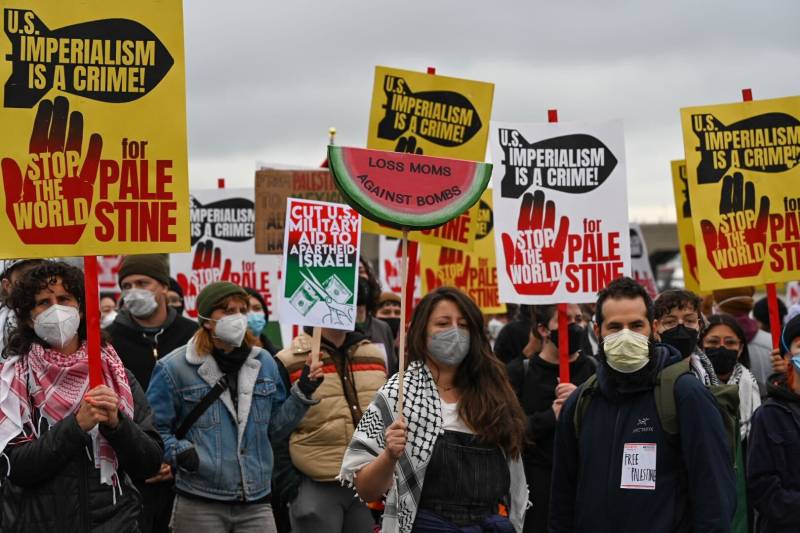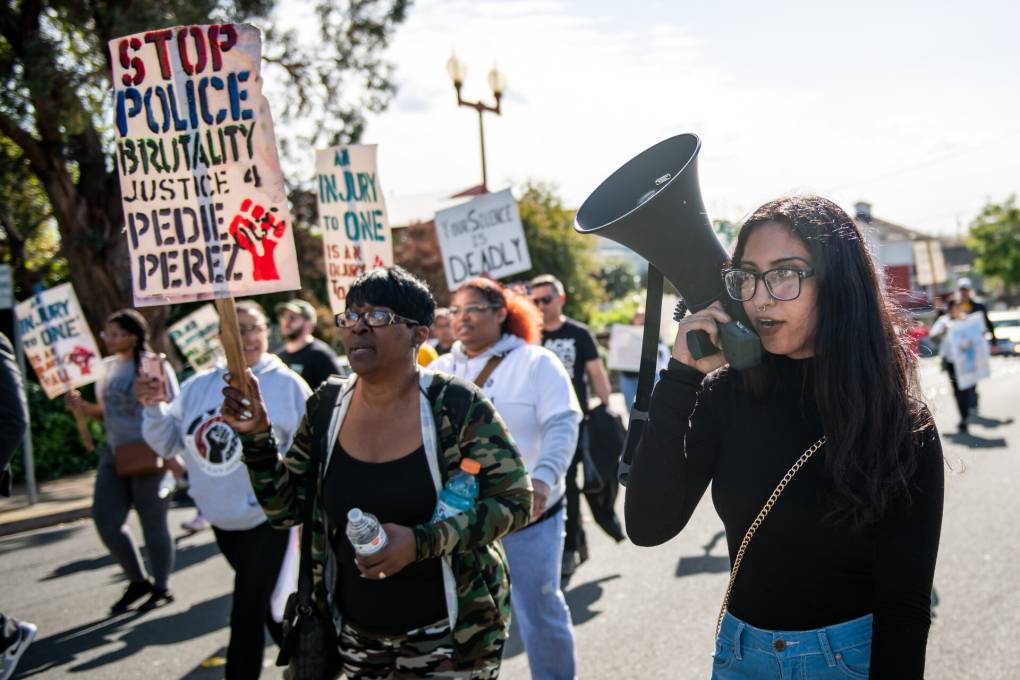Agarwal of the ACLU is concerned about the language Jenkins employed in the call out, which included “falsely imprisoned” and “restitution.”
“The only kind of interpretation that I can glean from that is [that] she really wants to dissuade people from exercising their right to protest by sort of heaping on these protesters all kinds of unusual consequences, some of which are financial,” Agarwal said.
“Our concern is that’s really going to have a chilling effect on speech because lawful protesting is inconvenient,” she said. “It is how you draw attention to an issue.”
Lederman added that she thought “it’s a bit far-fetched to charge people with false imprisonment for blocking traffic” — although she said in her experience, restitution is common in criminal cases. She noted that 78 pro-Palestinian protesters arrested after they blocked the Bay Bridge are paying “a very small amount of restitution to one person who had a specific medical bill that they attributed to the traffic blockage.”
Jenkins previously filed charges against those Bay Bridge protesters. However, a judge last month ordered them to pay the restitution and do community service instead of going to trial — a move Jenkins said she had to accept but did not support.
Agarwal said while she could not speak to the details of Monday’s actions, the government can place “reasonable limits on protest” in what is called a “time, place, and manner restriction,” by dictating certain parameters to try to ensure safety.
But “even in a situation where the protester does everything that they’re supposed to do, protests are inconvenient. They absolutely create traffic jams. They absolutely can create streets to shut down,” Agarwal said.
“That is a balance that we have struck in this country where we say we have a First Amendment right to voice our opinion on things, and we are willing to suffer some of the inconvenience that can come from that.”
KQED’s Sydney Johnson and David Marks contributed to this story.


